In this article, I'm going to delve into the criticism of Montessori and break apart some of the misunderstandings about this popular educational method.
I will be the first to admit that the first knowledge I had of Montessori left a bad taste in my mouth. I was a teenager at the time, tutoring a couple of young children who had recently been pulled from a Montessori school by their parents.
The children were unruly and mentally lazy, or so I thought. Coming from a traditional schooling background, this led me to decades of my own criticism of Montessori.
I had little knowledge of what Montessori education entailed and very little knowledge of early childhood development or early childhood education in general.
I was just a teenager, hired to get these young children “up to speed” in their academic performance.
Now, as a parent and a Montessori educator, I have a deeper understanding of these things.
I do still, however, understand where the critics are coming from.
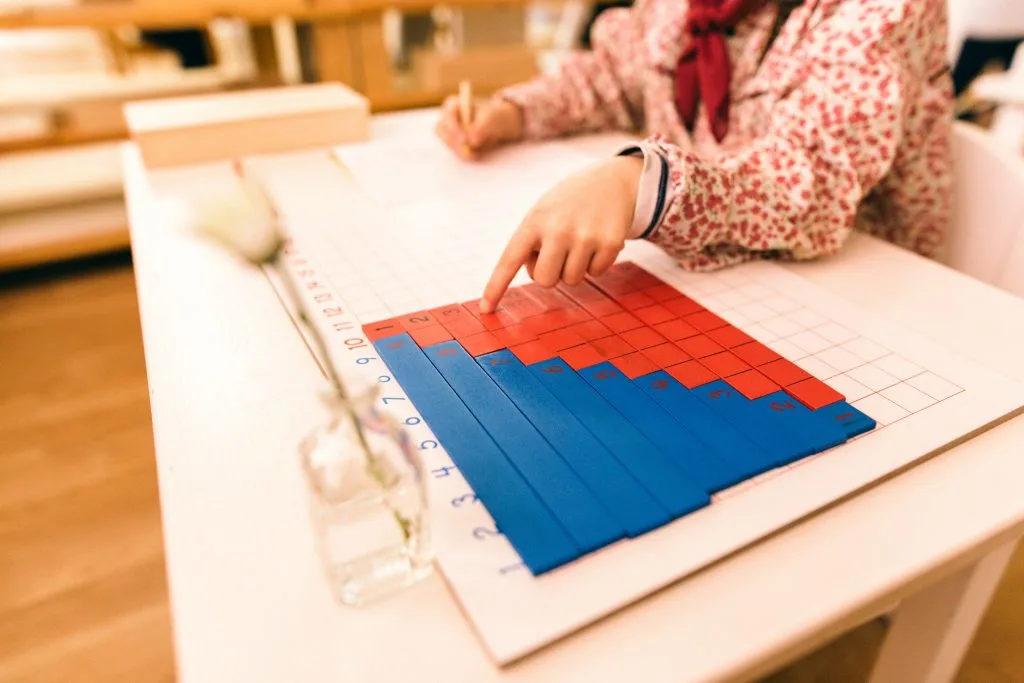
Montessori criticism – What is Montessori the most criticized for?
The misunderstanding of the term “child-centered learning”.
Many take this term to mean that children are being taught that they are the center of everything; that no one or nothing in the classroom is more important than them.
This is absolutely untrue. Children in a Montessori environment are taught to be respectful of others, to mind the teachers, and are encouraged to work in groups.
Children are involved in their immediate community and the community surrounding them.
Child-centered learning isn't specific to Montessori and it simply means that children are given the opportunity to follow their own interests and not a set curriculum.
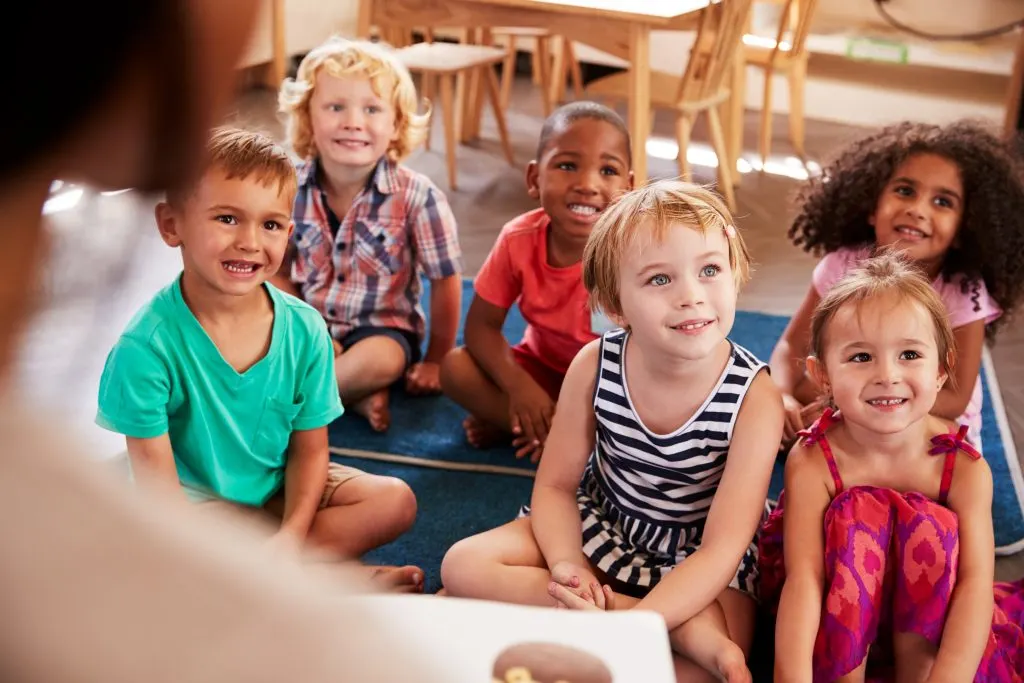
Montessori discourages creativity.
This is a Montessori criticism I come across often in my reading, but it couldn't be further from the truth.
While Montessori does not encourage teacher or parent-led imaginative play, children are free to use their own imaginations.
Building materials, colorful hands-on materials, and music, art, and free-play are present in every quality Montessori program.
Materials provided for “work”, as long as they are treated respectfully may be manipulated however a child pleases, encouraging imaginative play and creativity.
One of my first observations of a Montessori primary class had children bathing dolls, building with Magna-Tiles, and putting words together on their own using the Small Movable Alphabet -all creative activities.
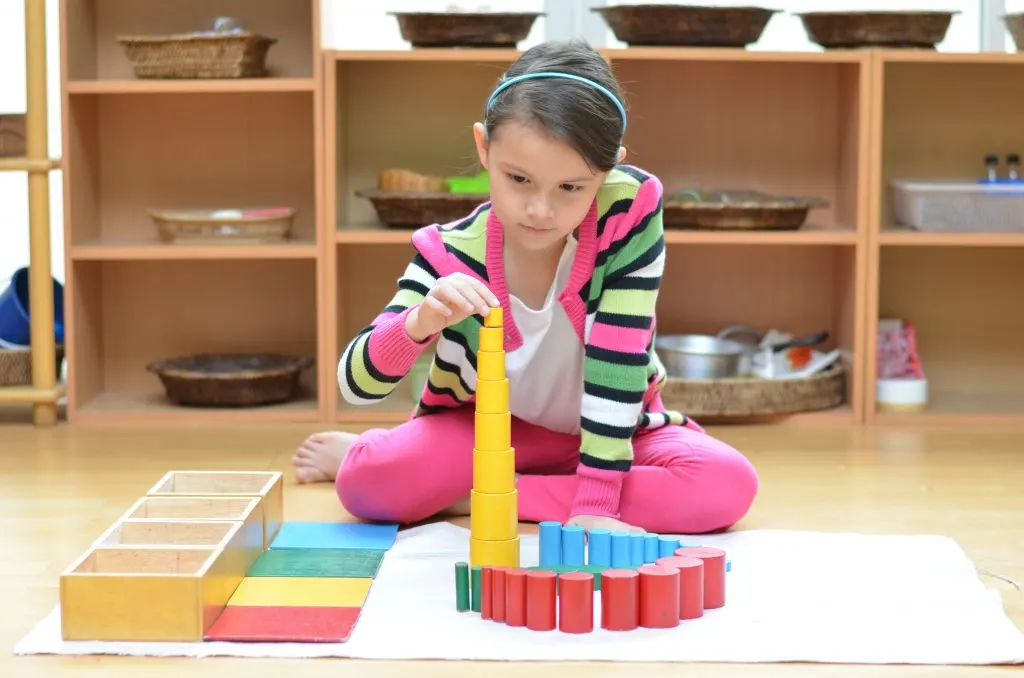
It's all work and no play.
Montessori schools use the term “work” to refer to all Montessori activities.
While this may give many parents the impression that children in these schools are being controlled by task-master teachers, this is just not true.
Play really is the “work” of childhood, and that is what these children are doing. While there are developmental and cognitive benefits to their “work”, children are often unaware of it and are simply just enjoying themselves!
Inaccessibility/cost
The cost of Montessori schools tops most pro-con lists on the “con” side. It's been a long-running problem for parents interested in sending their child to Montessori.
There has been a massive upcropping of public, charter, magnet, and sliding-scale fee Montessori schools all over the country, though.
This is making Montessori schools increasingly accessible to children of varying socioeconomic statuses. It's very exciting to see!

Lack of discipline and structure
This is a common Montessori criticism. Dr. Montessori believed in allowing a child to go through the natural stages in order to reach self-discipline.
This self-discipline is evident in Montessori classrooms across the world. Children do get to roam the classroom in search of a desired activity, but this is not a case of a lack of structure.
In fact, a brief observation of a Montessori classroom will immediately cure you of this mindset.
Desks and a teacher at the head of a class aren't an indicator of self-discipline, only of adult-imposed discipline.
Montessori classrooms have a different type of structure, and you'll find that children listen attentively to the teachers/guides and obey with joy.
Children are absolutely capable of creating their own structured communities in a Montessori environment.
Children are allowed to focus on the things they are interested in, but are not encouraged in subjects that will benefit them later in their academic careers.
This is a legitimate concern expressed by some graduates of Montessori high school programs.
Some people feel they were able to follow their own interests to the point where they missed out on some topics they could have used knowledge on later in life.
Others, however, have expressed just the opposite, and feel like exploring other interests would have been a waste of their time. They feel they were given the opportunity to excel in what they love.
Since there is a marked lack of Montessori high schools, this shouldn't be a concern for most parents.
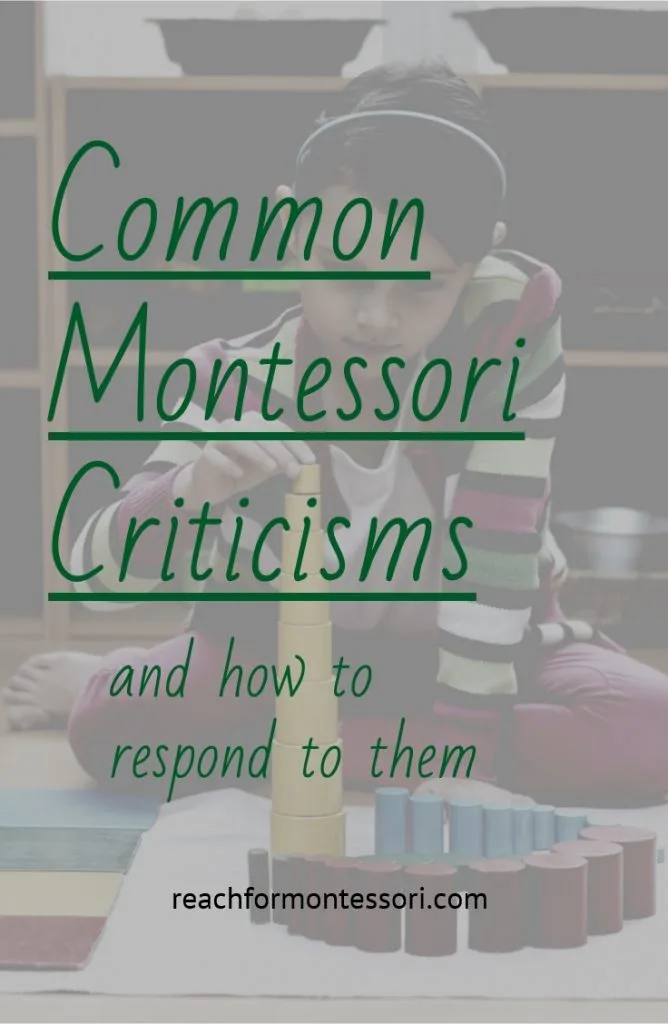
The ratio of teachers to children is too low.
This may seem to be the case, but Montessori classrooms operate differently than traditional or private school classrooms. Children in Montessori classes have a special community structure.
Mixed age groups provide younger kids opportunities to learn from older children and, inversely, they provide the older children a chance to reinforce their knowledge by teaching the younger set.
Another reason for the lack of an abundance of teachers in a large Montessori classroom is that most Montessori materials have a build in control of error.
This means that kids can work with, and learn from, the provided materials all on their own.
There is too much emphasis on Practical Life Activities
This comes from a basic misunderstanding of the purpose of Practical Life Activities.
People see children sweeping floors and washing dishes and tend to think, “Why do little kids need to be wasting their time doing these things when they could be learning something?”.
These activities, however, have aims beyond the obvious. Of course, kids can learn to do these activities at home or later in life, but that's not the point.
Practical Life Activities promote concentration, hand-eye coordination, small and large muscle development, teamwork, care for their immediate environment, and so much more!
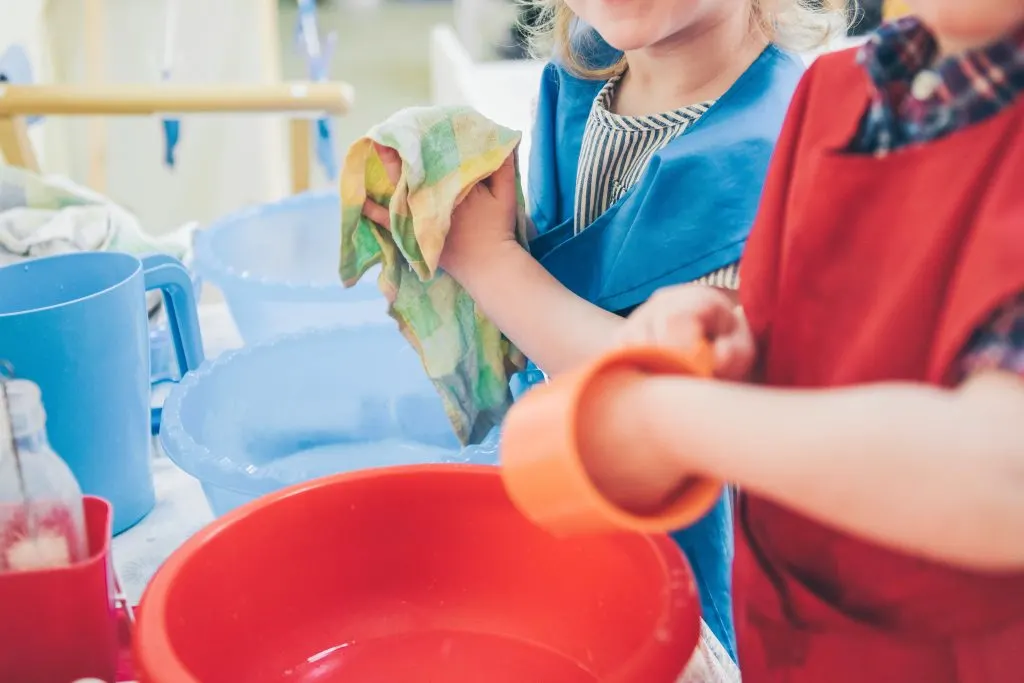
Some may see them as mindless “chores”, but children enjoy them and there are so many benefits to these activities.
Transitioning to public schooling may be difficult.
This may be true for some kids. Montessori schools operate very differently than public schools.
Children who attend Montessori schools are used to a lot of freedom in their learning and in their physical movements.
It's quite different than sitting at a desk and reading books along with a teacher.
This can prove difficult for some children.
There are areas wherein children who transition from Montessori to public schools have an advantage, though.
One of these areas is mathematics.
Montessori math does a great job of preparing children for “Common Core Math”. Group activities and self-initiated work are also areas where Montessori children should have no trouble at all.
Students aren't given exams to test their progress.
This is only true for private Montessori schools. Public and other Montessori schools that receive government funding are subject to state exams.
This doesn't mean that private Montessori schools do not track students' progress, though. Logs are kept by Montessori teachers to ensure students achieve proficiency in all academic areas.
The criticism of Montessori education is fairly widespread. There is much evidence to support this style of education, though.
I encourage you to read the studies, visit a Montessori classroom, and come to your own conclusions.
I'm always looking for feedback. Did you attend Montessori school or does/did your child attend?
If so, what are the pros and cons in your opinion? Do you have a Montessori criticism you'd like to share?
Cheers and don't forget to subscribe!
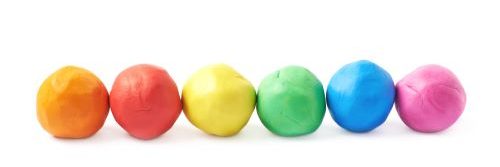
Makayla
Monday 9th of December 2019
I’ve always wanted to learn more about Montessori education. This is a great source of information. Definitely going to refer to this !
Kristin
Sunday 8th of December 2019
Wow. I had no idea what Montessori school was. I think I have heard of it but never took the time to learn about it. It really sounds like a great way for children to learn.
Dawn
Sunday 8th of December 2019
I think another criticism comes from the fact that there are many Montessori schools (at least here in the US) that don’t actually fully implement Montessori principles! I’m not even sure that a school has to do anything special to use the name “Montessori!” It’s crazy! So there are a lot of BAD private and charter schools out there that are using the term “Montessori” that AREN’T ACTUALLY MONTESSORI!!!!! So people see these “Montessori” schools and how poorly they’re doing and think that Montessori is bad. But as an educator myself, I LOVE the principles of Montessori, and if I’m not able to homeschool my own kids, I’d like to try to send them to Montessori schools.
Sue Denym
Monday 9th of December 2019
Yes. So many daycares slap the word "Montessori" on their signs so they can charge an insane tuition. It's a shame.
Kelly| Citytoast2southerntea
Friday 6th of December 2019
I love the concept that you do to be creative but at the same time touching the points that the children struggle with even through play. Awesome!
Darrah
Friday 6th of December 2019
My middle is currently in a public Pre-K, and while it’s not endorsed as Montessori, they follow all of the same concepts. They use a play-based curriculum and any “units” they use during the year are all based on what they see the kids interested in at the time. They also get “jobs” ranging from table-cleaner to “plant-waterer”, etc. My daughter also went through the program, and the kindergarten at the same school was very similar. We have loved the experience so far. Again, while it’s not technically a true Montessori, I can’t think of anything negative about the concepts we seen in action. Education shouldn’t be a “one-size-fits-all”, so having options is vital.
Sue Denym
Monday 9th of December 2019
Yes! My daughter attends a a charter IB school and their methods are very similar to Montessori. I'm very pleased so far.